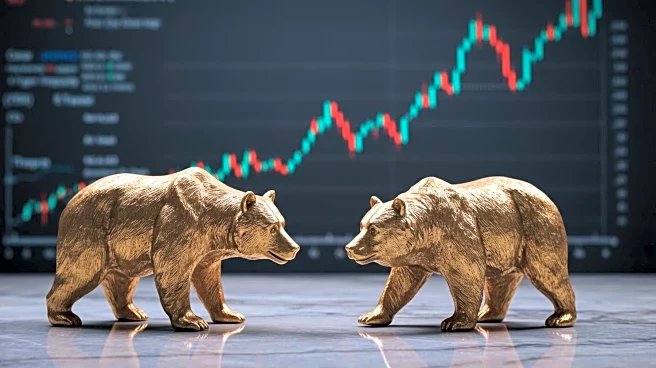What is the story about?
What's Happening?
The Federal Reserve's annual Jackson Hole conference, scheduled from Thursday to Saturday, is anticipated to impact U.S. stock market trends. Historically, the S&P 500 index has shown a tendency to gain around the time of the conference, particularly following the Fed Chair's speech. DataTrek Research's analysis indicates an average increase of 0.9% in the index during the five trading days surrounding the event. This year, however, the S&P 500 has experienced a decline leading up to the conference, contrary to the usual pattern. Investors are closely watching Fed Chair Jerome Powell's speech on Friday, which is expected to provide clarity on potential interest rate cuts at the upcoming September meeting. Recent weak labor market data has strengthened expectations for such a move, with Fed Fund futures pricing in an 84% chance of a rate cut.
Why It's Important?
The Jackson Hole conference is a significant event for financial markets, as it often provides insights into the Federal Reserve's monetary policy direction. The anticipation of an interest rate cut could influence investor behavior and equity valuations. A rate cut may stimulate economic activity by lowering borrowing costs, potentially benefiting businesses and consumers. However, it also reflects concerns about economic growth and inflation. The outcome of Powell's speech could have broad implications for market confidence and investment strategies. Stakeholders, including investors and policymakers, are keenly observing these developments to gauge the Fed's approach to managing economic challenges.
What's Next?
Following the Jackson Hole conference, the focus will shift to the Federal Reserve's meeting on September 16-17, where a decision on interest rates is expected. Market participants will analyze Powell's speech for indications of the Fed's future policy actions. A confirmed rate cut could lead to increased market activity and adjustments in investment portfolios. Additionally, ongoing monitoring of labor market data and inflation trends will be crucial in assessing the economic outlook. Stakeholders may also consider the implications of the Fed's decisions on global financial markets and economic stability.















